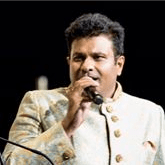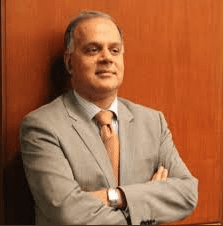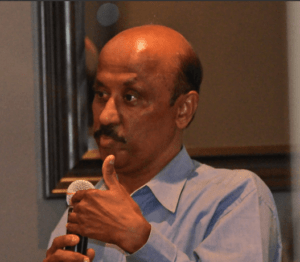About a hundred community members gathered in Martin Place in Sydney on May 31, 2018, around mid-day in protest against the recent shooting of people who were campaigning against the Vedanta – Sterlite Plant in Tuticorin – Tamil Nadu, India. Dr Hugh McDermott MP, Member for Prospect (Australian Labor Party) and Greens NSW MP Mehreen Faruqui MLC were present and made statements in support of the protest meeting.
Although the Sterlite protest was not publicised prior to its happening, the gathering seemed to be have been well-planned by some predominantly Tamil speaking community members as was evident from their presence in reasonably in good numbers on a working day. The presence of two Members of Parliament and some local media was also noticed. However, it appeared to be a protest with mixed agendas, since slogans were also raised against the Indian Prime Minister, Narendra Modi as well as coal kingpin Adani.
Post the short protest meeting, social media burst into frenzy with Facebook comments, counter comments and arguments. So much so, that seemed to cause rifts between close friends because of divergent views on such a protest organised in Sydney in the presence of local politicians.
Irrespective of such reactions, the Sterlite protest in Sydney – however small – gives rise to the following questions.
-What were the expected outcomes of this protest meeting?
-What is the relevance of organising a protest on community matters internal to India in Australia?
-Why were the local politicians invited and what purpose was achieved from their presence?
-Will the families of the unfortunate shooting victims be provided with any redressal measures?
– Why was only selected media invited?
– What are the plans of these protesters moving forward?
– Were the relevant community organisations informed or consulted?
The Indian Telegraph spoke to prominent Sydney-based Tamil community leader, Mr Anagan Babu, who participated in the Sterlite Protest at Martin Place and some of the other community leaders from the Indian community in NSW. Following are their viewpoints:
Anagan Babu Janardhanan – Secretary, Tamil Arts and Cultural Association (TACA)

“My participation in this protest is to condemn the brutal killings of 13 lives during the Tuticorin protest on May 22, 2018 and to stop such unethical and inhumane acts in the future. We want to give a clear message to the ruling authorities that their actions are being noticed by international communities. There is no intention to malign the image of our motherland on foreign soil and this is not for or against any political parties here or back
home. Also, in future, if such protests are announced by any group or individuals in the name of Sydney Tamils, I, as a responsible representative of the community, will be making sure that they are transparent in identifying themselves as organisers and take full responsibility of the placards they are preparing for display during the protest and any other related controversies.”
Sreeni Pillamari – President, United Indian Associations (UIA)

“Tamil brothers and sisters have our solidarity, always, but I am disappointed at how political issues of India are being raised by some of our community members, here, in Australia. This is tarnishing the image of our community and of India in multicultural Australia. It is also incorrect for the Australian politicians to get involved in Indian political issues.”
Dr Yadu Singh – President, Federation of Indian Associations of NSW (FIAN)

(Excerpts from his blog https://yadusingh.com/2018/06/03/tuticorin-deaths-focus-on-the-facts-not-fiction)
My issues with this protest is not because of the protest per say, because people have a right to protest. Having said that, I am not sure as to what people achieve by organising protests in Australia on matters happening in the country of their birth. Many, including me, believe that such protests achieve nothing except giving some transient self-satisfaction of pics on Facebook and coverage in ethnic media.
My concerns are against the blatant politics, and misrepresentation and distortion of facts of the incident by the vested interests. Contrary to the claims by the protesters, the facts are that Tuticorin firings have no relevance with the UNO, terrorism, State-sponsored terrorism, BJP or “India killing Tamils” nonsense. It has everything to do with law and order problem inside Tamil Nadu, whose CM is obviously a Tamil, and whose Police is also Tamil, who fired on Tamil protesters, who breached section 144 of Indian Penal Code despite the warnings to stop doing so.
It’s a sad & unfortunate situation and I am saddened with the loss of lives, but I am equally sad with blatant and ill-informed politics being played by some people.
I urge people to focus on the facts, not fiction, and stop running an anti-India campaign!
Vijay Halagalli – Senior Community Member

At the outset, I wish to pass my condolences to the bereaved families of the victims in this unfortunate incidence. The protest meeting attendees, including many from United Nations organisations, have raised many questions rather than providing the much-needed compassion, support and sympathy to the victims and their families. The deaths happened in the state of Tamil Nadu and the protests have painted the Indian Government as the perpetrator. As the protest was organised by a certain community, rest of the patriotic and proud members of the Indian community, have felt as if they were being accused of these deaths.
The unfortunate incident is an internal matter of India and more precisely relates to one state alone. These protests have brought the internal matter of Tamil Nadu out on to the streets of
Australia. The attendance by politicians particularly Australian Labor Party and Greens, has raised doubts as to whether the protest has more to it than just support for victims and their families. It seems that the involvement of local politicians may have sent the wrong message to the community and they must clarify their stand.
We, the Indo-Australians know that there is warm and friendly relationship between Australia and India in many areas of mutual benefit. I hope that relationship is not affected by such incidents. This protest could have been handled in a better way by the organisers by involving the wider community and mobilising the much-needed support to victims rather than keeping it confined within themselves and suddenly bringing the matter out on the streets.
One only can hope that common sense and maturity prevail before some community members start jumping into organising protest meetings based purely on emotional reactions on matters that cannot be handled in Australia, but will have the potential to dent the rising image of the Indian community.